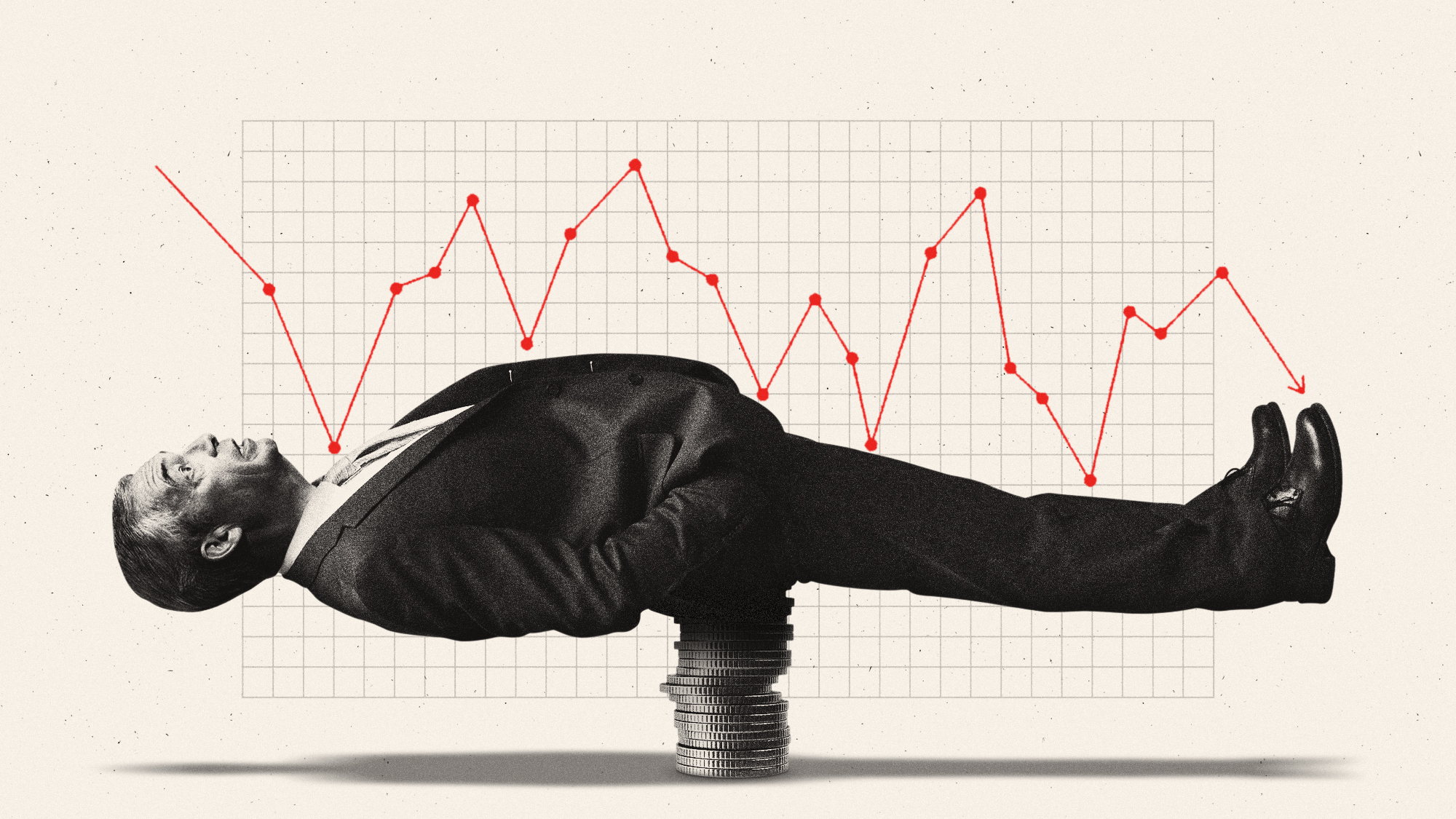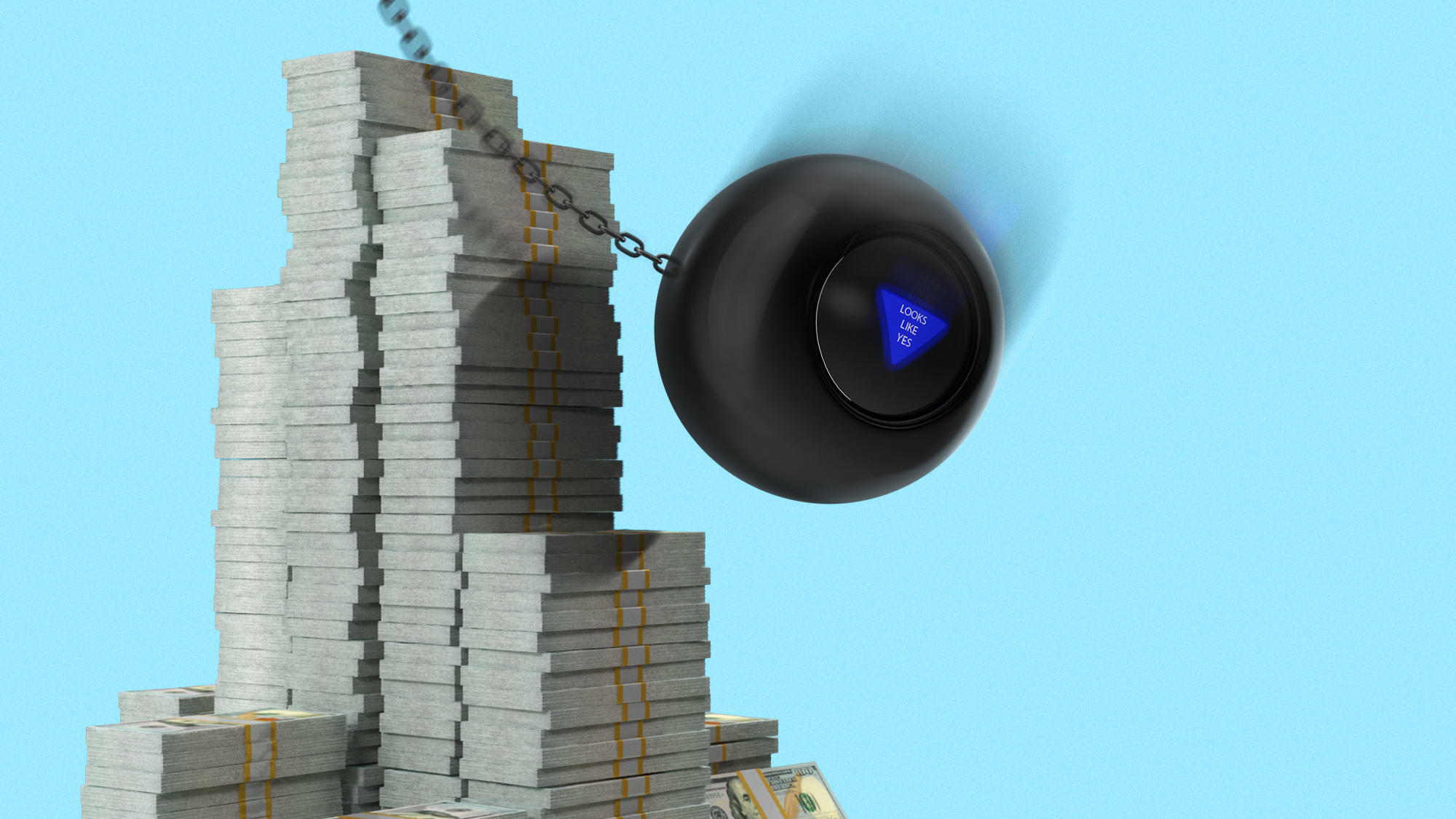Is the UK headed for recession?
Sluggish growth and rising unemployment are ringing alarm bells for economists

A free daily email with the biggest news stories of the day – and the best features from TheWeek.com
You are now subscribed
Your newsletter sign-up was successful
The UK’s unemployment rate hit 5% last week, the highest since the Covid-19 pandemic and higher than most analysts had predicted.
The Office for National Statistics figures, although in some dispute because of concerns over the quality of the data, indicate a weakening jobs market and slowing wage growth. Taking out the “skewed levels” of the pandemic years, the current unemployment rate is “the highest seen since August 2016”, said the BBC.
Two days after the unemployment numbers, it was revealed that GDP grew by only 0.1% in the third quarter of this year. The sluggish growth and rising unemployment rate are ringing alarm bells for economists about the risk that the UK will soon be entering a recession.
The Week
Escape your echo chamber. Get the facts behind the news, plus analysis from multiple perspectives.

Sign up for The Week's Free Newsletters
From our morning news briefing to a weekly Good News Newsletter, get the best of The Week delivered directly to your inbox.
From our morning news briefing to a weekly Good News Newsletter, get the best of The Week delivered directly to your inbox.
What did the commentators say?
To count as a recession, the economy has to have “two consecutive three-month quarters in negative territory”, said The Independent’s chief business commentator James Moore. In the first quarter this year, UK plc grew by 0.7%; in the second, by 0.3%. Now we’re “flatlining”.
And last week’s unemployment stats “caught most economists on the hop” – they “weren’t expecting anything quite as bad”. The jobs market “looks increasingly like a pile of industrial slag dumped in an area of outstanding natural beauty”.
Donald Trump’s state visit in September was accompanied by “a blizzard of announcements” on investment in AI, a “genuine vote of confidence in the UK economy”, said The Telegraph’s assistant editor Jeremy Warner. But outside of tech, there is “gathering gloom”; AI is “unlikely to save the UK” from “the growing drumbeat of an incoming recession”.
In September, a group of chief executives “fired warning shots at the Treasury”, said Christian May, editor-in-chief of City A.M. John Roberts, boss of British retail giant and FTSE-listed AO World, thinks “things are so bad he feels the UK is heading into recession”. The R-word is “a big call”, said May. More people are talking about stagnation – “an equally ugly phrase”. But the fact that we’re talking about recession at all is in itself “telling, and alarming”.
A free daily email with the biggest news stories of the day – and the best features from TheWeek.com
Fears of a recession are growing because all “the signals are lining up at the same time”, said Nigel Green, of the deVere Group, in the Daily Mail. “Weak output, higher unemployment and looming tax increases form a combination that investors cannot ignore.”
Britain’s economy is “in the dog house”, said The Economist. “Inflation is sticky, debts and deficits are high, and productivity growth is low.” Infrastructure and housing projects are “turning out to be a sorry disappointment” rather than drivers of growth.
But “some of the doomsaying is overdone”. Britain is not in a recession – yet. Its strengths, such as its universities, the English language, service sector, and the City of London, are “enduring”. In many ways, Britain “can look to continental Europe and count its blessings”.
What next?
No mainstream economist has “a fully blown UK recession pencilled in” for the coming year, said The Telegraph’s Warner. Recessions “generally require some sort of trigger” – although in this case it may not be necessary, given that the economy “seems instead to be simply dying”.
Office for National Statistics figures published today show the government has “inched a little closer to its 2% inflation target”, as inflation fell to 3.6% in October, down from 3.8% in September, said The Spectator. This “slight improvement offers limited relief” – “the real test” will be whether inflation falls to 2% by mid-2027, in line with Bank of England projections.
A further cause for modest optimism is that a December interest-rate cut is “all but nailed on, which will please mortgage borrowers”, said The Independent’s Moore. But tax increases will “inevitably attach a lead weight to Britain’s economic legs”. There’s “a lot riding” on next week’s Budget – “that R-word could at least be in play”.
Harriet Marsden is a senior staff writer and podcast panellist for The Week, covering world news and writing the weekly Global Digest newsletter. Before joining the site in 2023, she was a freelance journalist for seven years, working for The Guardian, The Times and The Independent among others, and regularly appearing on radio shows. In 2021, she was awarded the “journalist-at-large” fellowship by the Local Trust charity, and spent a year travelling independently to some of England’s most deprived areas to write about community activism. She has a master’s in international journalism from City University, and has also worked in Bolivia, Colombia and Spain.
-
 The Week Unwrapped: Do the Freemasons have too much sway in the police force?
The Week Unwrapped: Do the Freemasons have too much sway in the police force?Podcast Plus, what does the growing popularity of prediction markets mean for the future? And why are UK film and TV workers struggling?
-
 Properties of the week: pretty thatched cottages
Properties of the week: pretty thatched cottagesThe Week Recommends Featuring homes in West Sussex, Dorset and Suffolk
-
 The week’s best photos
The week’s best photosIn Pictures An explosive meal, a carnival of joy, and more
-
 Is the US in a hiring recession?
Is the US in a hiring recession?Today's Big Question The economy is growing. Job openings are not.
-
 Unemployment rate ticks up amid fall job losses
Unemployment rate ticks up amid fall job lossesSpeed Read Data released by the Commerce Department indicates ‘one of the weakest American labor markets in years’
-
 Why has America’s economy gone K-shaped?
Why has America’s economy gone K-shaped?Today's Big Question The rich are doing well. Everybody else is scrimping.
-
 Can Nigel Farage and Reform balance the books?
Can Nigel Farage and Reform balance the books?Today's Big Question Nigel Farage has, for the first time, ‘articulated something resembling a fiscal rule’ that he hopes will win over voters and the markets
-
 Should Labour break manifesto pledge and raise taxes?
Should Labour break manifesto pledge and raise taxes?Today's Big Question There are ‘powerful’ fiscal arguments for an income tax rise but it could mean ‘game over’ for the government
-
 Autumn Budget: will Rachel Reeves raid the rich?
Autumn Budget: will Rachel Reeves raid the rich?Talking Point To fill Britain’s financial black hole, the Chancellor will have to consider everything – except an income tax rise
-
 Is the US in recession?
Is the US in recession?Today's Big Question ‘Unofficial signals’ are flashing red
-
 How is AI reshaping the economy?
How is AI reshaping the economy?Today's Big Question Big Tech is now 'propping up the US economy'